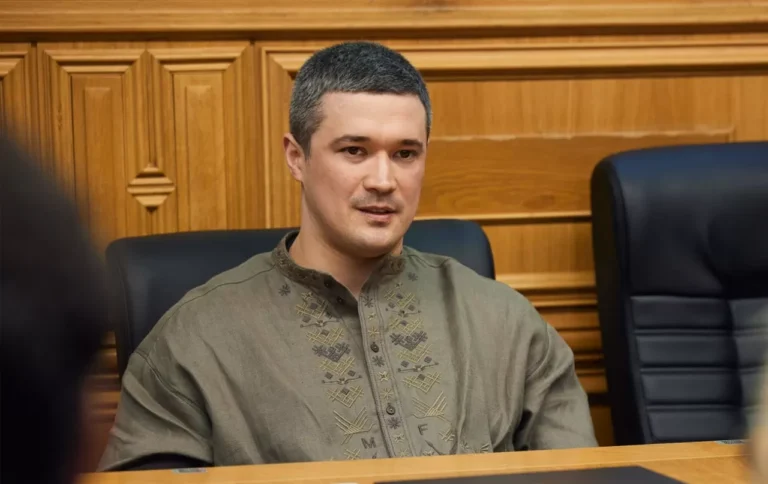
Ukraine Has a New Cabinet: What Does Yulia Svyrydenko’s Appointment Mean?
On July 17, the Verkhovna Rada appointed Yulia Svyrydenko as Prime Minister of Ukraine. This is only the second time in independent Ukraine’s history that a woman has headed the Cabinet of Ministers. Her career path ranges from business and attracting foreign investment to state finances, international cooperation, and negotiations with Western partners. Before this, Svyrydenko worked as First Deputy Prime Minister, headed the Ministry of Economy, served as Deputy Head of the President’s Office, and spent several years leading development departments at both local and national levels.
Svyrydenko has become a symbol of a new balance: pragmatic, restrained, and focused on institutional change. Her reputation is not scandalous but rather technocratic. At the same time, as soon as the new Cabinet began its work, a personnel conflict immediately arose, calling into question not only the government’s approach to reform, but also the transparency of state decisions.
The Personnel Dilemma: Who and Why Was Not Appointed Head of the ESB
The main intrigue of the first week was the situation around the Economic Security Bureau (ESB). This is a new body, intended to become the center of combating economic crimes in place of the tax police. Alexander Tsyvinsky a seasoned officer with years of experience who had passed Security Service (SBU) vetting and served in military intelligence won the open competition for the position.
However, on July 7, the Cabinet rejected his candidacy. The official explanation was a “legal procedure,” although this decision immediately raised questions in society. Member of Parliament Yaroslav Zheleznyak publicly asked Svyrydenko why the winner of the competition was not appointed head of the ESB. In response, the Prime Minister said that the government “had the right to express its position,” and the procedure had been conducted in accordance with laws and regulations. Each minister voted, taking into account information, including possible connections between the candidate and the aggressor state, which was provided by the Minister of Justice and the Minister for European Integration.
Tsyvinsky himself, in an open statement, emphasized that he had no “compromising connections,” held security clearance, and had passed regular SBU checks. He publicly asked what specific security arguments were the basis for the refusal, given that he had passed all vetting procedures.
Law or Political Expediency: The Essence of the Conflict
The situation escalated when MPs from “European Solidarity” and “Holos” registered a resolution demanding the immediate appointment of the ESB head who had won the open competition. Their argument was simple: the Law “On the Economic Security Bureau” does not provide the government with discretion to refuse the competition winner the Cabinet must formally appoint the person selected by the competition commission.
However, the government operates under a different interpretation: if there are questions about the security or connections of the candidate with the aggressor state, the Cabinet can refuse to appoint even the competition winner. The key argument is data from the Security Service of Ukraine, which has not been disclosed publicly.
As a result, there is a legal collision: one side cites the formal wording of the law, the other national interests and the government’s authority to assess the completeness and reliability of information about the candidate.
What This Story Means for Public Trust
For the new Cabinet, this became the first serious test. The choice between a formal procedure and “real risks” to national security is not just a legal issue, but also a matter of government reputation, transparency of state decisions, and public trust. Experts and part of the public saw in this situation signs of a “behind closed doors” process without public explanation, clear facts, or understandable standards.
Anti-corruption organizations have pointed to a possible rollback from European standards of public service and risks to further reform. The issue of personnel independence, transparent procedures, and government accountability is not a minor detail but a fundamental criterion for assessing the maturity of the new authorities.
International Context and Consequences for Reform
The situation regarding the appointment of the ESB director has already become a topic of discussion among Ukraine’s international partners, including the IMF and the European Union. Prompt and transparent resolution of personnel matters in the field of anti-corruption and security is one of the main conditions for financial support and trust in the new team.
At the same time, Svyrydenko’s new government demonstrates that the Cabinet seeks to avoid even hypothetical national security risks, even if it generates criticism and legal disputes. In the end, this is a litmus test: whether the new team can find a balance between the law, public interests, and security expediency without losing the trust of society and partners.
The appointment of Yulia Svyrydenko is not just a change of names in the Cabinet. It is a symbol of a new approach to managing the country: pragmatism, technology-driven decision-making, and focus on real risks. However, it is through such examples as the ESB situation that society will judge whether the new team can play by the rules or whether transparency will remain only a declaration. Once again, Ukraine faces a choice: trust through procedure, or flexibility through political expediency. And now, more than ever, it is important for the authorities to clearly explain the motives behind their decisions openly, responsibly, and in a European manner.














